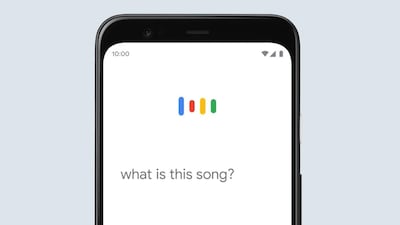You’re going about your day when a melody leaps out from the furthest recesses of your memory. You can’t remember any of its lyrics. You’re not even sure if it was from a song or a symphony. You try to pinpoint where you last heard the tune, figuring out if it was through a friend or in a film. Still, nothing.
A new Google feature might help you keep that tune from becoming a taunting din in your head. All you need to do is hum.
Dubbed ‘Hum to Search’, the feature is available in the latest version of the Google app. To use the feature, tap on the microphone icon and ask it to “search a song”.
You get 15 seconds to hum, whistle or even sing the song that comes to mind.
And don't worry, you don't need to have perfect pitch to make use of the feature. In fact, according to Google, even the tone-deaf can benefit from "Hum to Search".
“We’ll show you the most likely options based on the tune,” a post on Google’s official blog reads. “Then you can select the best match and explore information on the song and artist, view any accompanying music videos or listen to the song on your favourite music app, find the lyrics, read analysis and even check out other recordings of the song when available.”
The post explains that a song’s melody is like its fingerprint, with every track containing its own unique identity.
“We’ve built machine-learning models that can match your hum, whistle or singing to the right ‘fingerprint’.
“When you hum a melody, our machine-learning models transform the audio into a number-based sequence representing the song’s melody. Models are trained to identify songs based on a variety of sources, including humans singing, whistling or humming, as well as studio recordings.
“The algorithms also take away all the other details, like accompanying instruments and the voice’s timbre and tone. What we’re left with is the song’s number-based sequence, or the fingerprint.”
The feature is available in English on iOS and in more than 20 languages on Android. However, there are plans to “expand this to more languages in the future".


